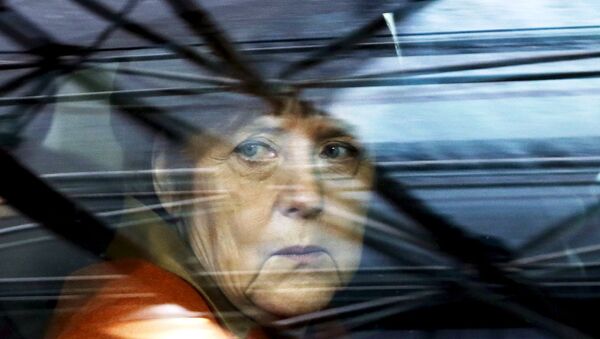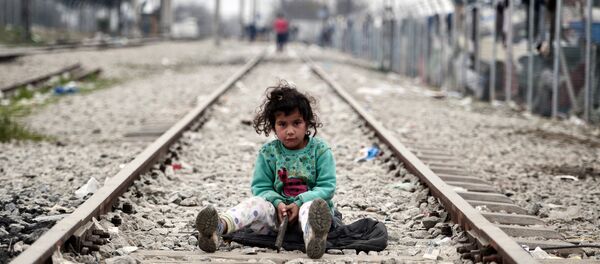Serbia, Slovenia, Croatia and Macedonia closed their borders to migrants this week — following Bulgaria and Macedonia's decision to do the same on its border with Greece, stranding tens of thousands of migrants and prompting Merkel to say closing borders "is not the solution to the entire problem."
However, Tusk contradicted her by tweeting:
I thank Western Balkan countries for implementing part of EU's comprehensive strategy to deal with migration crisis
— Donald Tusk (@eucopresident) March 9, 2016
Irregular flows of migrants along Western Balkans route have come to an end. Not a question of unilateral actions but common EU28 decision
— Donald Tusk (@eucopresident) March 9, 2016
Merkel has angered many of her EU partners over her original suggestion that Europe's doors were open to refugees and has now failed to gather support for a pan-European response to the crisis. Her plan is to strengthen the EU's external borders, but not to close internal borders.
She is backing the plan to relocate 160,000 migrants from Greece and Italy across the member states under a mandatory quota system that is opposed by many states — especially in central Europe.
However, according to the latest European Commission report, in February:
"The relocation of 66,400 people in need of international protection from Greece, as agreed by the Member States, has started very slowly with only 218 relocations so far. Only 15 Member States have offered places to Greece for relocations.
"Despite the fact that relocation from Italy started a few weeks earlier than from Greece, it is still far behind the rate necessary to achieve the overall target to relocate 39,600 people in need of international protection in two years. In total, 279 applicants have been relocated to date," the Commission report states.
Blackmail Claims
Meanwhile, the numbers streaming across the West Balkan route to reach western Europe exploded in recent months, prompting the Balkan States — along with Austria — to impose border controls.
Viable & realistic solution to #RefugeeCrisis can only result from coordinated action, esp between EU & Turkey 4/4 pic.twitter.com/qys5ST0Ovt
— Alexis Tsipras (@tsipras_eu) March 3, 2016
Merkel is also under fire after pushing through an EU deal with Turkey under which the EU would pay another tranche of money to help Turkey deal with its refugee crisis in return for a series of measures that includes the EU sending "irregular migrants" from Greece back to Turkey, and which means the EU will take in Syrian refugees in Turkey on a one-for-one basis, which many believe goes against international law.
Critics of the plan are asking how — under the one-for-one swap system — the Syrians are to be relocated within the EU. Since the plan to relocate the 160,000 from Greece and Italy has already shown little signs of garnering support, it is unclear — and so far not agreed by the EU states — how the Turkish relocation plan will work.
Tusk was believed to be angered by the deal brokered by Merkel as many thought Turkey was effectively blackmailing the EU in order to offer assistance to the refugee crisis in return for the acceleration of Turkish accession to the EU and visa-free access to the EU for all its 75 million citizens from June 2016.





